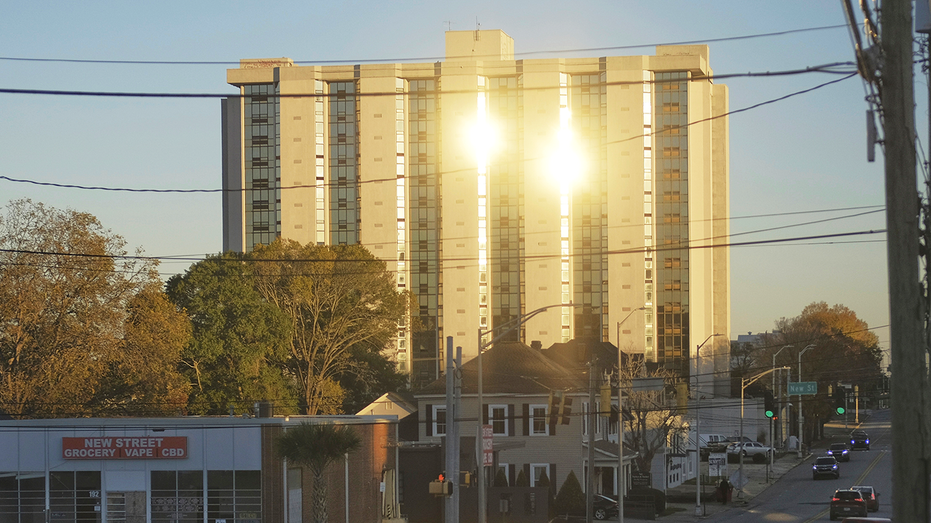Thoughts of American battlefield heroes might conjure up images of overseas valor in service of oppressed and conquered people around the world.
Capt. John Paul Jones became a legend for the U.S. Navy by leading the Bonhomme Richard to an improbable victory over HMS Serapis off the coast of England during the American Revolution.
The American Expeditionary forged an end to World War I fighting in Western Europe.
The Marines gave America its most heroically memorable image hoisting Old Glory over Iwo Jima in the far reaches of the Pacfiic Ocean in the last months of World War II.
VISIT THESE 5 DESTINATIONS THAT INSPIRED AMERICA’S FAVORITE SONGS, BOOKS AND MOVIES
But you don’t need to travel overseas to walk in the footsteps of America’s battlefield heroes or ponder the sacrifice of those who gave their lives here in the United States.
Here’s a look at five U.S. travel destinations that help tell the story of the cost of freedom.
World War II history lives in infamy in the heart of Honolulu, where Pearl Harbor remains a powerful testament to American tragedy and resolve.
Visits are highlighted by the haunting memorial to the USS Arizona, which exploded catastrophically Dec. 7, 1941, and which serves as a tomb for 1,102 sailors killed in the Sunday morning attack.
HAWAII’S HIDDEN TREASURES INCLUDE THESE HISTORIC WAR MONUMENTS IN OAHU
Oil still leaks from the ship today, as if the Arizona is still shedding tears, observers have noted. Other attractions include Hickam Field, where U.S. aircraft were destroyed on the ground before they had a chance to fight back, and the USS Missouri.
The mighty battleship was not at Pearl Harbor during the attack, but it floats as a testament to American resolve and triumph.
Japan signed the documents of surrender ending World War II aboard the USS Missouri in Tokyo Bay on Sept. 2, 1945, less than four years after the Pearl Harbor attack.
A sprawling landscape celebrates one of the planet’s unique ecologies and cultures, along with dramatic American history.
The park is located in the heart of bayou country near the mouth of the Mississippi River. Highlights include Chalmette Battlefield, where Andrew Jackson led a highly diverse Army of American people to victory over the British at the end of the War of 1812; and the Chalmette National Cemetery, housing the remains of veterans of that battle, the Civil War and other conflicts.
FROM ALABAMA TO TEXAS, US TRAVEL SPOTS TO SOAK UP AMERICAN SCIENCE AND INNOVATION
Barataria Preserve, a haunting 26,000-acre wilderness of hardwood forests and bayous, offers a chance to observe alligators and other swamp creatures in their natural habitat.
There may be no better place to celebrate the nation’s ties to the seas than in Maryland’s capital, also briefly the nation’s capital in 1783, when the Treaty of Paris was signed, ending the American Revolution.
Annapolis is home to the U.S. Naval Academy and known as the “Sailing Capital of the United States.” Its Colonial-era downtown is a great place to explore and enjoy Maryland’s signature oysters and crabs at local hot spots such as Middleton’s or Cantler’s.
For more Lifestyle articles, visit www.foxnews.com/lifestyle
Annapolis serves as the center of the state’s delicious Crab & Oyster Trail, highlighting the best in Chesapeake Bay delicacies.
The Civil War Siege of Vicksburg ended after six weeks with a victory by Ulysses S. Grant’s Union troops July 4, 1863, the day after federal forces repelled Pickett’s Charge to claim victory 1,000 miles to the northeast in Gettysburg, Pennsylvania.
Vicksburg’s haunting park today is highlighted by some 1,400 memorials and markers, representing all 32 states that sent men to fight there, and two major cemeteries of both Confederate and Union war dead.
The national park’s attractions also include the USS Cairo Gunboat and Museum, featuring the ironclad Union vessel that patrolled the Mississippi River. Success at Vicksburg helped catapult Grant to the head of the Union army the following year and, eventually, the presidency.
CLICK HERE TO SIGN UP FOR OUR LIFESTYLE NEWSLETTER
But his ruthless siege nearly starved the people of Vicksburg. The city would not celebrate the Fourth of July again until 1947 during a visit and speech by World War II hero Gen. Dwight Eisenhower.
The stunning human cost of preserving the nation is seen in this sprawling battlefield in rural south-central Pennsylvania.
Gettysburg pitted about 160,000 men in a pitched three-day battle that turned the tide of the Civil War in favor of the Union. Some 50,000 soldiers of both sides were killed or wounded. It remains the largest battle in North American history.
Visitors today can stand where Joshua Lawrence Chamberlain ordered the 20th Maine to fix bayonets and charge down Little Round Top to save the southern end of the Union line, walk in the footsteps of brave Confederates slaughtered during Pickett’s charge on the decisive day of battle or tour the vast battlefield by car, exploring the hundreds of haunting monuments that dot the landscape today.




